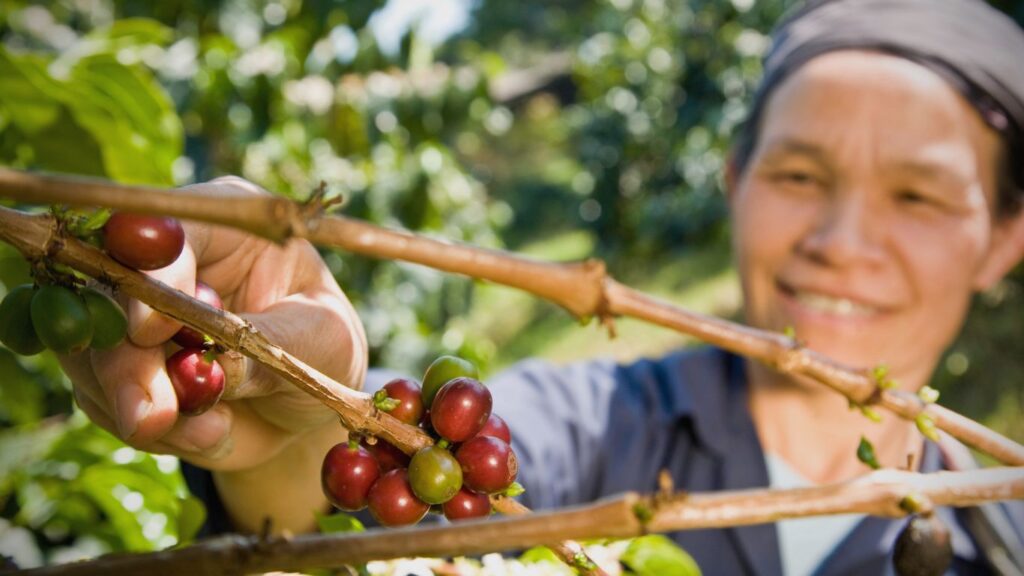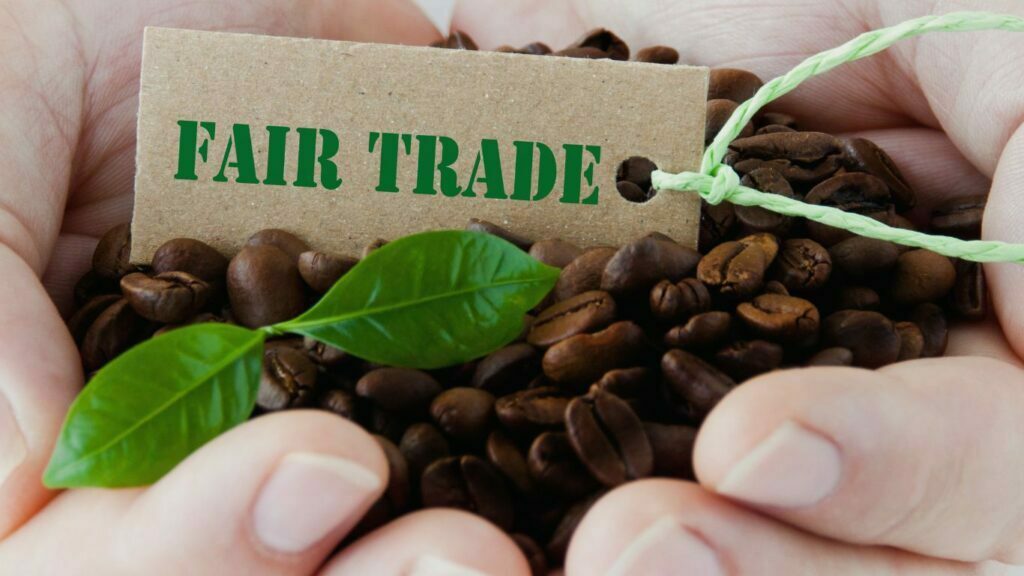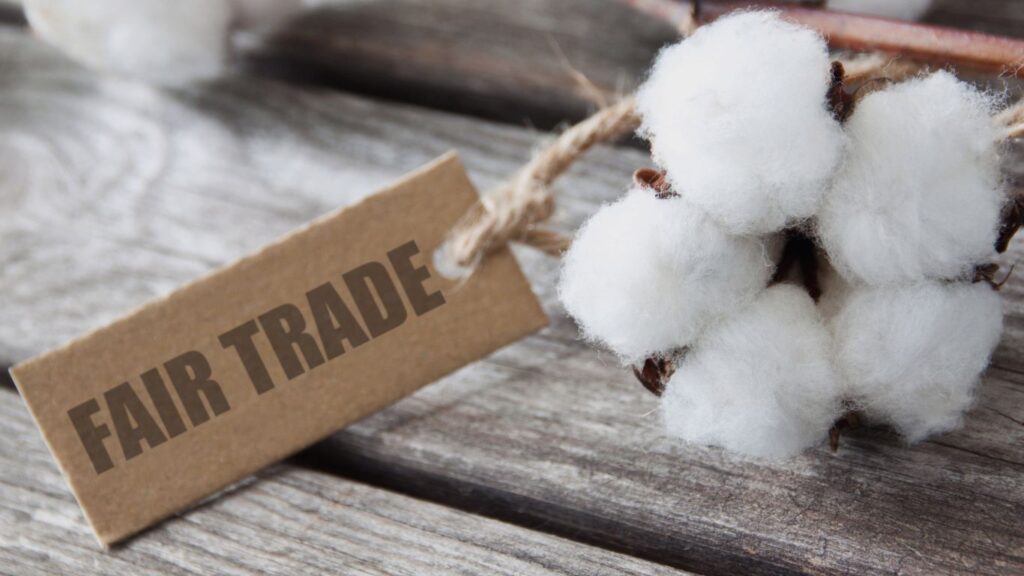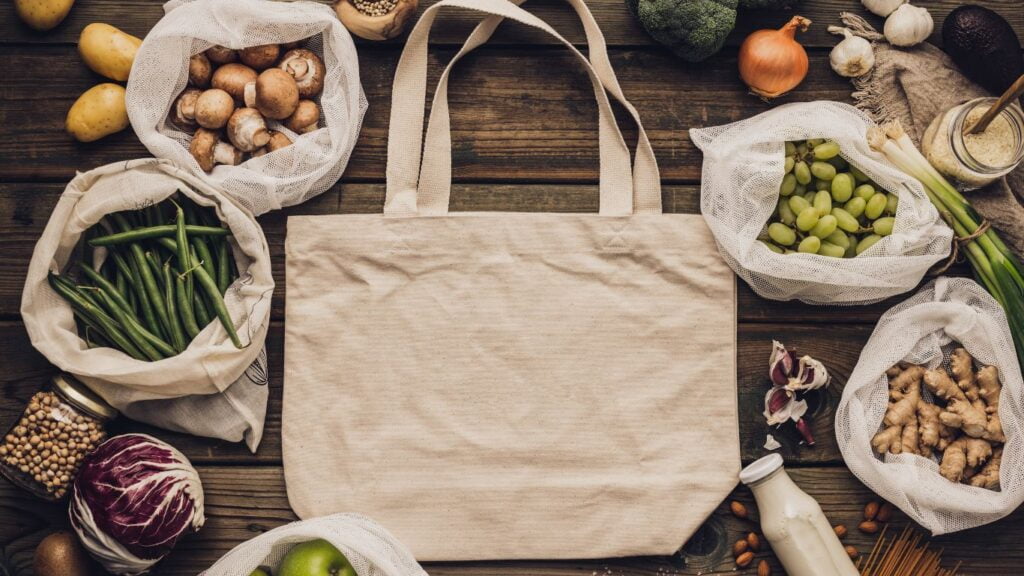You’ll love this blog post if you care about fair trade and sustainability. This guide will teach you everything you need to shop sustainably and support fair trade products. You’ll discover why sustainable shopping is essential, what fair trade means, how to identify fair trade products, and what kinds of products are available in different categories. You’ll also get some tips on how to make sustainable and fair trade shopping easy and fun. By the end of this post, you’ll be ready to make a difference through conscious consumerism.
Table of Contents
The Importance of Sustainable Shopping

To emphasize the significance of sustainable shopping with fair trade products, we must understand the impact of our consumer choices on the environment and the people. At the same time, it’s crucial to hear the personal experiences of others when making this change. In this section, I’ll share my personal experience while briefly introducing two sub-sections: Understanding the Impact of Consumer Choices on the Environment and People and My Personal Experience with Sustainable Shopping.
Understanding the Impact of Consumer Choices on the Environment and People
Our buying choices have a significant effect on nature and people. By picking sustainable products and backing eco-friendly companies, we can make a positive difference for the planet and its inhabitants. Making wise decisions, like choosing organic food or using reusable bags, can help reduce pollution and lead to a healthier future.
Moreover, sustainable shopping helps fair labor rules and aids local areas. Opting for ethically sourced products encourages safe working conditions and stops workers from being exploited. Buying goods from local businesses also boosts the economy and reduces the carbon footprint of long-distance shipping.
Many may not know sustainable shopping has a long history, going back centuries. Indigenous cultures throughout time have practiced eco-friendly living, using materials from their local environment to create valuable items. This frame of mind has motivated today’s sustainability movements, linking us to our past and preparing a fairer, more equitable future.
Being eco-friendly doesn’t have to mean giving up fashion – sustainable shopping helped me look good while doing good.
My Personal Experience with Sustainable Shopping
Living an eco-friendly life involves sustainable shopping habits. Sustainable shopping has made my life experiences richer and positively affected the environment. With this mindset, I feel responsible for my buys and their effects on the planet. It enables me to make wise choices protecting natural resources, fitting in with a healthy circular economy.
I first saw the importance of sustainable shopping on a visit to a local farmers market amazed me with pesticide and fertilizer-free vegetables sold directly from the farmers. The idea of buying from the people who grow and harvest agricultural products connected with me. Supporting small-scale rural entrepreneurs helps regional economic growth and is an example of sustainable agricultural systems worldwide. In my daily life, I started using durable bags made from organic cotton instead of plastic, saving money and positively contributing to our environment.
As conscious consumers come together with one goal: to make changes in how we live and consume goods or services – we will see significant benefits in reducing our ecological footprint on Earth by being environmentally mindful and investing in sustainable ecosystems with ethical products rather than taking part in unsustainable practices that will exhaust our natural resources.
What is Fair Trade?

To understand the concept of fair trade, knowing its principles and how it can benefit producers and their communities is essential. This part of the guide discusses the meaning of fair trade and its core principles. Additionally, we’ll explore the advantages of fair trade, not only for producers but for their respective communities as well.
Defining Fair Trade and Its Principles
Fair Trade is an ethical way to do business. It puts a priority on fair wages and safe working conditions for producers. It also helps social and environmental initiatives. This socially responsible practice helps disadvantaged communities. Buyers have to pay the right price for goods and services.
The Fair Trade concept has some fundamental rules. For example, no exploitation of labor, no child labor, and products grew naturally that respect biodiversity. It creates long-term partnerships between producers and traders. This trust helps small business owners.
It applies to anything, not just coffee. It helps consumers make informed decisions. They know their purchase supports a just cause that improves living conditions in minority communities worldwide.
Fair Trade isn’t just about feeling good. It’s about doing good for the producers and communities involved.
The Benefits of Fair Trade for Producers and Communities
Fair Trade: Empowering Producers and Communities!
Fairtrade guarantees producers get a fair cost for their products. This allows them to invest in their family, community, and environment. It brings more than individual advantages; it encourages sustainable economic growth in developing countries to promote long-term well-being.
The Benefits of Fair Trade for Producers and Communities:
- Increased Incomes: Fair trade guarantees producers a fair price for their goods. This helps them cover production costs and generate enough money to support themselves and their families.
- Community Development: Fair trade organizations offer training and resources. This empowers producers to upgrade the quality of their products, make new ones, and develop strategies for responsible business practices like environmental sustainability. All this encourages communities to become self-sufficient by creating job openings.
- Social benefits: Not just economic benefits, fair trade also promotes social development by supporting community projects like constructing schools or health clinics or providing clean water facilities. These initiatives benefit people’s quality of life in marginalized regions.
Understanding the importance of ethical consumption for consumer advocacy in modern society is vital. Supporting this trend helps communities with a mission we can all get behind. To further enhance the positive impact on smallholder farmers, ethical consumption practices help.
- Purchasing traceable Fairtrade products will encourage transparency between the producer’s origin story and the buyer’s trustworthiness.
- Rewarding individuals who adopt lifestyle decisions subscribing to sustainably made goods free from unethical production protocols. This signals demand from conscious consumers to enterprises, pushing them to implement stricter strategies for using sustainable production methods.
How to Identify Fair Trade Products

To confidently identify fair trade products, you need to know the different labels and certifications to look for when shopping. Additionally, transparency is vital in ensuring fair trade principles are applied throughout the supply chain. In the following subsections, we will explore these aspects in detail, allowing you to make an informed choice while shopping sustainably.
Labels and Certifications to Look for When Shopping
Seeking signs that products follow Fair Trade regulations? Look out for specific labels and certifications. Here’s a breakdown:
Labels & Certifications to Check When Shopping:
| Cert | Represents | Criteria |
|---|---|---|
| Fairtrade Int’l Cert. | Guarantees fair prices & conditions for farmers & workers in developing countries. | Min. price, social premium, no child/forced labor, safe working conditions, transparency in trade. |
| Rainforest Alliance Certified Seal | Supports sustainable farming & conservation. | Biodiversity preservation, ecosystem conservation, worker wellbeing, community development. |
| USDA Organic Seal | Ensures product produced using sustainable ag methods without harmful chemicals. | No synthetic fertilizers or pesticides. |
| Certified B Corporation Label | Balances purpose & profit by meeting rigorous social & environmental standards. | Social responsibility, environmental awareness, accountability. |
Note: Products may not have these certifications, as they require additional fees from the producer/ manufacturer. But, some companies may still follow fair trade without certification.
Pro Tip: To ensure companies follow fair trade principles, research their business practices & reach out with questions about their ethical values.
The Role of Transparency in Fair Trade
Transparency in fair trade is key to upholding ethical standards. This allows consumers to make informed decisions and hold suppliers responsible. To choose fair trade products, look for certification labels like Fairtrade International or the Rainforest Alliance. This guarantee that standards like workers’ rights, environmental sustainability, and fair prices have been met. You can also research the company’s supply chain to see if they prioritize ethical practices.
To guarantee ethical values, monitoring and auditing operations are a must. Many brands use third-party organizations to do these checks, including ensuring labor laws and regulations such as health and safety are complied with.
Fair Trade Products in Different Categories

To quickly find fair trade products in different categories, this section titled “Fair Trade Products in Different Categories” with sub-sections such as Food and Beverages, Beauty and Personal Care, and Home Goods and Decor is a solution worth considering. These sub-sections allow you to identify which fair trade products best suit your needs readily.
Food and Beverages
Fairtrade products in sustenance and refreshment include ethical manufacturing, quality standards, and environmental sustainability. Natural farming techniques and respect for producers’ welfare are used to produce foodstuffs such as fruits, vegetables, grains, tea, coffee, spices, wine, and beer.
One of the most popular fair trade products is coffee. It ensures wealth is shared equitably and that farmers are paid higher wages. Organic honey is also in demand, as it guarantees no harsh chemicals are used during production.
Chocolate bars can be made with certified fair-trade cocoa from Ghana and Nicaragua.
Blueberries grown in South American countries have recently emerged as fair trade produce. This helps farmers who would otherwise migrate to bigger cities during offseasons.
Beauty and Personal Care
This area includes items that enhance personal appearance and cleanliness. The Fair Trade business is interested in guaranteeing these items’ ingredients are ethically sourced without exploiting people or the environment.
- Fair Trade body scrubs, soaps, shampoos, and conditioners.
- Fair Trade makeup, e.g., mascara, lipstick, and foundation.
- Fair Trade skincare items like moisturizers, serums, and toners.
- Handmade Fair Trade perfumes from natural essential oils.
- Fair Trade cotton swabs and feminine hygiene products like tampons and pads
Ethical sourcing practices also confirm that no dangerous chemicals have been applied in creating these products. Some brands go further by using recyclable packaging.
Tip: Go for Fair Trade beauty items for a great look with a conscience. Check out fair trade products to liven up your home decor while still helping the planet – because nothing says style like sustainability.
Home Goods and Decor
Making a comfortable atmosphere is always delightful; thus, picking sustainable, nature-friendly home goods and decorations can help reduce the carbon footprint.
Purchase handcrafted containers and baskets from natural materials certified by Fair Trade to match your decor.
Organic cotton bedding, curtains, and throws can make your bedroom more eco-friendly while reducing environmental impact.
Create an energizing yet eco-friendly dining experience with dinnerware sets made of natural materials from Fair Trade producers.
These specially-made products not only add to the aura of your house but also support ethical production procedures.
Pro Tip: Buy eco-friendly cleaning products to keep your Fair Trade Home Good purchases in good condition for longer.
Shop purposefully and choose green and fair trade products – because being kind to the planet never goes out of fashion.
Tips for Sustainable and Fair Trade Shopping

We’ve compiled some helpful tips to simplify sustainable and fair trade shopping. You can support ethical and eco-friendly businesses while enjoying quality products with the right approach. Plan, research, shop locally, support small businesses, and reduce, reuse, and recycle to minimize your ecological footprint.
Plan and Do Research
Planning and researching are essential when shopping sustainably and ethically. Consider what products or companies fit your values and goals. Look for certifications such as Fair Trade, Rainforest Alliance, or B-Corp demonstrating a commitment to ethical practices.
Before purchasing, find out more about the production process, how workers are treated, if they are compensated, and if the materials used are environmentally friendly. Doing research will help you make informed choices that support fair trade practices and reduce your impact on the environment.
Plus, support local businesses that prioritize ethical and sustainable practices. Shopping locally reduces carbon emissions from transporting goods.
Pro Tip: Don’t be afraid to ask questions! Contact brands or retailers to learn about their production methods and ethics. Asking thoughtful questions shows businesses that consumers care about these issues and encourages them to improve their practices.
Shop Locally and Support Small Businesses
Local purchasing can help small businesses. These businesses help local economies, create jobs, and reduce shipping carbon footprints. Shopping at smaller stores can provide a unique shopping experience. They often carry products larger stores do not have. This benefits entrepreneurs who reinvest profits.
Building relationships with local owners and staff is a plus. Making purchases here establishes connections with people in the community. They care about customers.
Reduce, Reuse, and Recycle
This section is about shopping in a way that looks after the environment, people, and ethics. To reduce, reuse, and recycle:
- Purchase only what you need.
- Replace single-use items with reusable ones.
- Put recyclables and non-recyclables in the proper bins.
- Repurpose old items or give them away.
It’s important to pick products made from sustainable materials and buy locally-produced goods as much as possible. This lowers our carbon footprint while helping small-scale farmers and industries.
Pro Tip: Look for businesses with sustainability certification or eco-labels when shopping online. This guarantees their products meet environmental standards. Change starts with us, one ethical purchase at a time.
Read More about Sustainability
Conclusion: Making a Difference Through Conscious Consumerism

Conscious buying is a way to make a difference in the world. Selecting fair trade products can promote ethical and sustainable practices that improve producers’ lives and protect the environment. It’s about buying things and making wise decisions that align with your values.
Look for certifications such as Fairtrade or Rainforest Alliance when shopping for fair trade products. These labels guarantee that the product was produced and traded ethically and sustainably. Also, research the brands and companies to make sure they prioritize fair labor practices and sustainability.
When you purchase fair trade products, consider their effects beyond your personal use. Can they be recycled or upcycled? Is the packaging sustainable? Asking these questions helps reduce your ecological footprint and bolsters a circular economy.
Fairtrade products are more expensive, but this truly reflects their value and importance. Supporting ethical businesses also helps communities thrive, resulting in a better future.
Little changes in our purchasing habits can make a significant collective difference in global progress toward social justice and environmental sustainability.
Frequently Asked Questions
As someone passionate about sustainable shopping, I know how overwhelming it can be to navigate the world of fair trade products. Here are six of the most frequently asked questions I hear about sustainable shopping:
1) What exactly does “fair trade” mean?
Fairtrade certification guarantees particular labor and environmental standards are met throughout a product’s supply chain. This includes fair wages, safe working conditions, and environmentally sustainable practices. When you see a fair trade certification on a product, it means that the people who made it were treated fairly and that the environment was respected during production.
2) Why should I care about fair trade products?
If you care about the well-being of the people who make the products you buy and the planet we live on, fair trade is a great way to ensure that your purchases align with those values. By buying fair trade products, you can rest assured that the people who made them were paid fairly and treated ethically and that the environment was respected during production.
3) What kinds of products can I buy that are fair trade?
Almost anything you can imagine can be made relatively! Some popular fair trade products include coffee, chocolate, clothing, and home goods. When in doubt, look for fair trade certifications on product packaging or research to find fair trade brands that align with your specific interests and needs.
4) Aren’t fair trade products more expensive than non-fair trade products?
While it’s true that some fair trade products can be more expensive than their non-fair trade counterparts, this isn’t always the case. It’s important to remember that fair trade products come with many hidden costs, like paying fair wages and implementing environmentally sustainable practices, that non-fair trade products don’t have. Additionally, buying fair trade products can often save you money in the long run by being more durable and long-lasting.
5) How can I ensure I buy authentic fair trade products?
Look for certifications! Independent organizations issue fair trade certifications and can be found on product packaging or the websites of fair trade brands. Research and support brands with a transparent supply chain and robust commitment to ethical and sustainable practices.
6) What easy ways to incorporate fair trade products into my daily life?
Start small and build from there! Some easy ways to start sustainable shopping include replacing single-use items with reusable ones (like water bottles and shopping bags), buying fair-trade coffee and chocolate, and supporting fair-trade clothing and home goods brands. You can also look for fair trade products when shopping for gifts or stocking up on household essentials.
